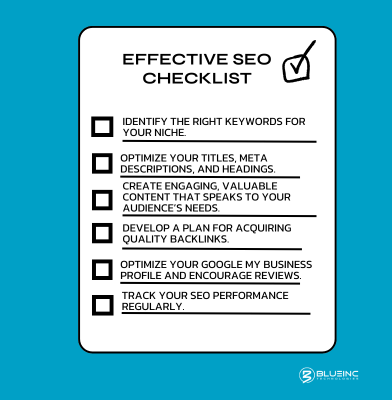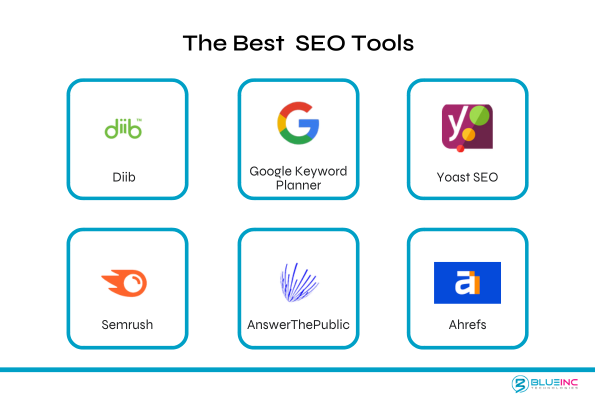
Have you ever wondered how some websites are the land at the top while others seem to not be anywhere? If you’re curious about this digital phenomenon, you’re in the right place! Today, we’re diving into the fascinating world of SEO—or Search Engine Optimization—and its undeniable impact on digital marketing.
Imagine you’re running a cozy little bakery. You’ve crafted the perfect recipes, decorated your shop beautifully, and even created mouth-watering content for your website. But if no one can find you online, what’s the point? That’s where SEO comes in. It’s what helps potential customers discover your offerings.
In this post, we’ll break down what SEO really means, explore its role in digital marketing, and share some practical tips to help you shine online.
What is SEO and Why Does it Matter?
First things first, let’s clarify what search engine optimization really is.
Simply put, SEO is all about improving your website’s visibility on search engines like Google. When potential customers search for products or services you offer, effective SEO helps ensure your website pops up at the top of their search results.
So, why does this matter? Well, studies have shown that the majority of clicks go to the top three organic search results. This means that if you’re not ranking high, you might be missing out on a treasure trove of traffic—and ultimately, sales.
SEO and Marketing: The Perfect Match
Now, let’s explore the relationship between SEO and marketing.
Many people wonder, “SEO stands for what?” It stands for Search Engine Optimization, and it plays a crucial role in digital marketing strategies. SEO ensures that your content is not just good but also discoverable. It drives organic traffic to your website, which is essential for lead generation and conversion.
By combining SEO with your marketing efforts, you can create a powerful synergy that maximizes your online reach. For instance, when you optimize your website for SEO, you’re not just improving your visibility; you’re also providing valuable content that meets your audience’s needs.
Curious about how your website is doing? Here's a free online SEO audit tool you should try. WebTraka runs through your website and highlights how well it is doing and what you can do to fix it.
Just plug in your URL and let WebTraka handle your website.
Your Checklist for Effective SEO
Here’s a simple checklist you can use to audit your SEO efforts:
Feel free to download this checklist and keep it close by as you implement your SEO strategies!
What to Consider When Optimising Your Website for SEO
When it comes to optimizing a website for SEO, there are a few key strategies to keep in mind:
- Define SEO Marketing: Understand that SEO marketing is not just about using the right keywords; it’s about creating a comprehensive strategy that includes content marketing, social media, and more.
- Search Optimization Marketing: Utilize search optimization marketing tactics to improve your content visibility and engagement. This includes using long-tail keywords like “optimizing website for SEO” to target specific search queries.
- Content Quality: High-quality, relevant content is crucial. Think about what your audience is searching for and create content that answers their questions.
By focusing on these strategies, you’ll be well on your way to improving your SEO efforts!
What’s New in SEO?
The digital marketing landscape is always changing, and so is SEO. Here are a couple of trends you’ll want to keep an eye on:
- Voice Search Optimization: With smart speakers on the rise, optimizing for voice search is becoming essential. Think about using natural language and question-based keywords to capture this growing audience.
- AI and SEO: Artificial intelligence is revolutionizing how we approach SEO. Tools powered by AI can provide insights into user behavior and help automate various aspects of SEO, making your job a bit easier.
- User Experience (UX): Google’s algorithms are increasingly prioritizing user experience. Factors like page load speed and mobile responsiveness are critical for your rankings. So, don’t overlook them!
Avoiding Common Pitfalls: Myths and Mistakes
Let’s clear up some common misconceptions about SEO. Here are a few myths to avoid:
- Myth 1: SEO is a One-Time Task
Reality: SEO is an ongoing process that requires regular updates and optimizations. - Myth 2: More Keywords = Better Ranking
Reality: Keyword stuffing can harm your rankings. Focus on quality content instead. - Myth 3: Only Big Brands Need SEO
Reality: Small businesses can benefit immensely from effective SEO strategies tailored to their target audience.
Choosing the right tools can streamline your SEO efforts and provide valuable insights that will take your digital marketing strategy to the next level.
Embrace SEO in Your Digital Marketing Strategy
Incorporating SEO into your digital marketing strategy is no longer optional; it’s a necessity. By understanding its significance and implementing effective strategies, you can enhance your online visibility, attract more traffic, and drive conversions. Remember, SEO is a journey, not a destination. So, stay informed, keep experimenting, and watch your digital presence thrive.





